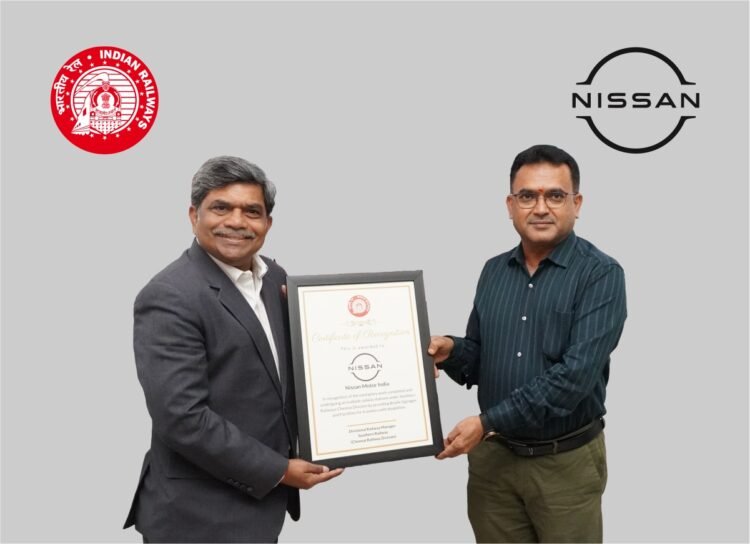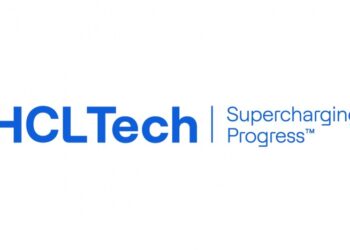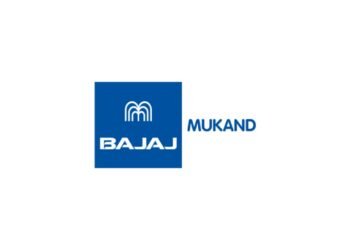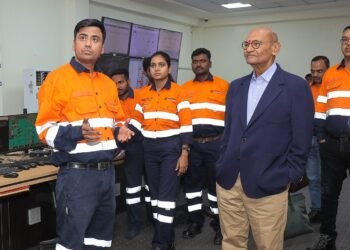Making India’s Railway Stations Inclusive: A Step Forward

CHENNAI (India CSR): Nissan Motor India Pvt. Ltd. (NMIPL) deepens its commitment to improving accessibility at railway stations across India for the differently-abled. The company announced the completion of phase 2 of its partnership with Indian Railways and NGO Anuprayaas to make railway stations more accessible for people with visual, hearing, or other impairments and those using wheelchairs. The third phase of the partnership covering 17 more stations in Chennai and other locations were announced by Rakesh Srivastava, MD, NMIPL and Eerya Bhukya Vishwanath, DRM, Chennai Division, Southern Railway at a media briefing session.
Nissan’s Visionary Push for Inclusive Railways
In a commendable move towards fostering inclusivity in public transport, Nissan Motor India Pvt. Ltd. (NMIPL) has taken the lead in making railway stations more accessible for the differently-abled. With a nationwide transformation already in progress and a special focus on Chennai, Nissan’s collaboration with Indian Railways and NGO Anuprayaas is a beacon of hope. This initiative not only caters to the immediate needs of the differently-abled but also shines a light on the broader challenge of accessibility in India. Dive in to understand the depth and breadth of Nissan’s efforts and the significant strides they’ve made in this direction.
1. Nationwide Transformation: A Commitment to Inclusivity
Over the past three years, Nissan Motor India Pvt. Ltd. (NMIPL) has been at the forefront of promoting accessibility within the transportation sector. They’ve taken significant strides to retrofit and modernize 30 railway stations across the country. These modifications are tailored to cater to the needs of individuals with visual and hearing impairments, as well as those who use wheelchairs. The emphasis has been on creating a seamless and independent travel experience for all.
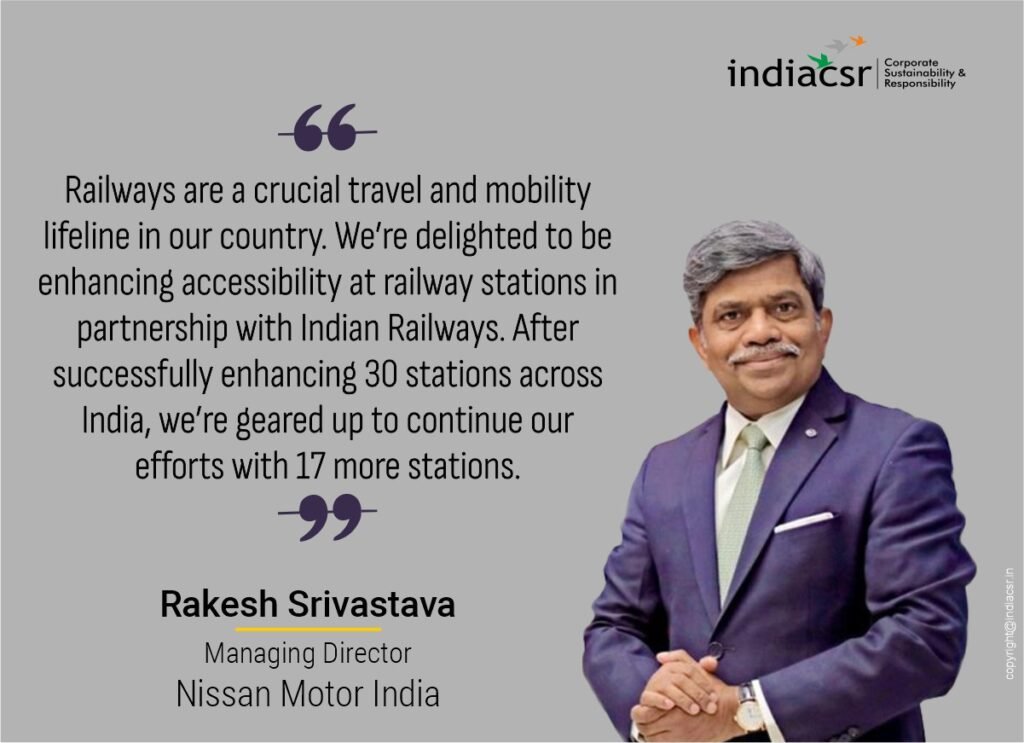
2. Chennai: The Next Hub for Enhanced Accessibility
Building on their success and learning from previous phases, Nissan’s next ambition is to expand their reach within the Chennai suburban line. They’ve identified 17 additional stations within this region to undergo similar transformations. Given Chennai’s bustling railway network and its significance as a transportation hub, this initiative will likely impact a large number of daily commuters and travelers.
3. Collaborative Drive Towards an Inclusive Future
One of the standout aspects of Nissan’s mission is their commitment to collaboration. They’ve joined forces with Indian Railways and NGO Anuprayaas to ensure a well-rounded and effective approach to accessibility. This partnership, which was initiated in 2022, has a clear roadmap: to enhance and make 15 railway stations annually more accessible over a three-year period. The combined expertise of a global automobile giant, a national railway system, and an NGO ensures a balanced perspective and efficient execution.
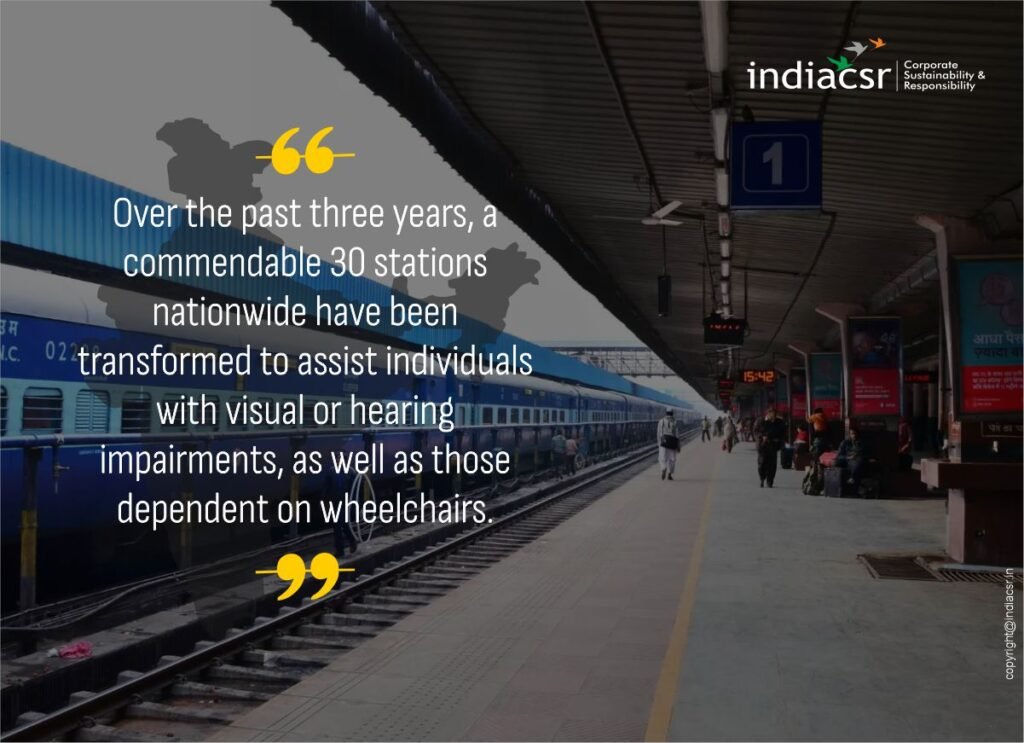
4. Features that Make a Difference
The changes that Nissan’s initiative is bringing to railway stations are both thoughtful and practical. For individuals with visual impairments, guiding braille indicators are being installed, making it easier for them to identify platform numbers and essential facilities. Braille station maps and information booklets further augment this. Reflective strips are being added to assist those with low vision. Additionally, sign language videos linked via QR codes provide essential station information for those with hearing impairments. The introduction of portable ramps makes boarding trains more feasible for wheelchair users. Furthermore, to bridge the gap between railway staff and differently-abled passengers, disability awareness sessions are being conducted, ensuring a supportive environment.
5. Addressing a Larger National Concern
While Nissan’s initiative is undoubtedly commendable, it brings to light a more significant concern: the lack of inclusive public spaces in India. With over 26.8 million differently-abled individuals, the fact that only three percent of public spaces cater to their unique needs is a pressing issue. Through their determined efforts, Nissan Motor India is not just transforming railway stations but is also setting a precedent for other corporations and public sectors to make inclusivity a priority.
Nissan Motor India Pvt. Ltd. (NMIPL) is a fully-owned subsidiary of Nissan Motor Co. Ltd., Japan, established in 2010. With a manufacturing plant and R&D Centre in Chennai, Nissan, in partnership with its Global Alliance partner Renault, has invested $1.8 billion in the Indian economy, facilitating employment and skilling opportunities for over 70,000 individuals.
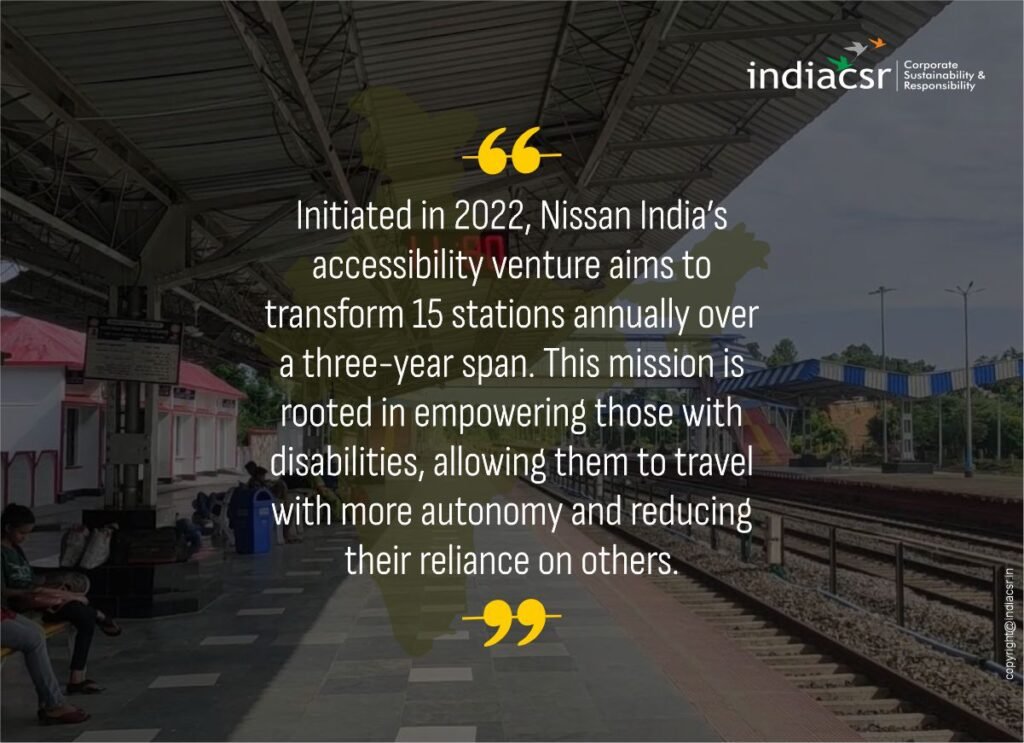
Progressive Steps Over the Years
Over the past three years, a commendable 30 stations nationwide have been transformed to assist individuals with visual or hearing impairments, as well as those dependent on wheelchairs. Continuing this momentum, Nissan has now set its sights on covering an additional 17 stations in the Chennai suburban line.
Partnerships and Phases
In collaboration with Indian Railways and NGO Anuprayaas, Nissan India has successfully completed phase 2 of its project, focused on facilitating greater accessibility for those with impairments. Rakesh Srivastava, MD of NMIPL, and Shri Eerya Bhukya Vishwanath, DRM of the Chennai Division, Southern Railway, introduced the third phase of this project in a recent media briefing.
A Vision for the Future
Initiated in 2022, Nissan India’s accessibility venture aims to transform 15 stations annually over a three-year span. This mission is rooted in empowering those with disabilities, allowing them to travel with more autonomy and reducing their reliance on others.
“Railways are a crucial travel and mobility lifeline in our country. We’re delighted to be enhancing accessibility at railway stations in partnership with Indian Railways. After successfully enhancing 30 stations across India, we’re geared up to continue our efforts with 17 more stations,” expressed Rakesh Srivastava, Managing Director, Nissan Motor India.
Reflecting on the Journey
The first stage of Nissan’s project, which began in August 2022, witnessed modifications across 15 stations in Tamil Nadu and Maharashtra. Following this, the second phase, which started in August 2023, saw improvements across another 15 stations in these states. As the curtains fall on the second phase, Nissan India embarks on its third phase to revamp an additional 17 stations in the Chennai division, including:
Chennai Beach
Mambalam
Guduvancheri
Kanchipuram
Vandalur
Kattankulathur
Chrompet
Pallavaram
St. Thomas Mount
Nungambakkam
Saidapet
Kodambakkam
Tambaram Sanitorium
Chennai Chetpet
Tirusulam
Meenambakkam
Ambattur
Features for the Differently-Abled
For those with visual impairments, Nissan’s initiative introduces guiding braille indicators, braille station maps and information booklets, and braille signs for amenities. Moreover, reflective strips for individuals with low vision, sign language videos linked via QR codes, portable ramps, and wheelchairs for the divyang coach are now available. Furthermore, disability awareness sessions for railway staff have also been initiated.
The Greater Vision
With a staggering 26.8 million differently-abled individuals in India and a mere three percent of public spaces catering to their needs, there’s a pressing demand for more inclusive public facilities. Through their program, Nissan Motor India is championing the cause of making transportation more inclusive and accessible.
(Copyright @ India CSR)

